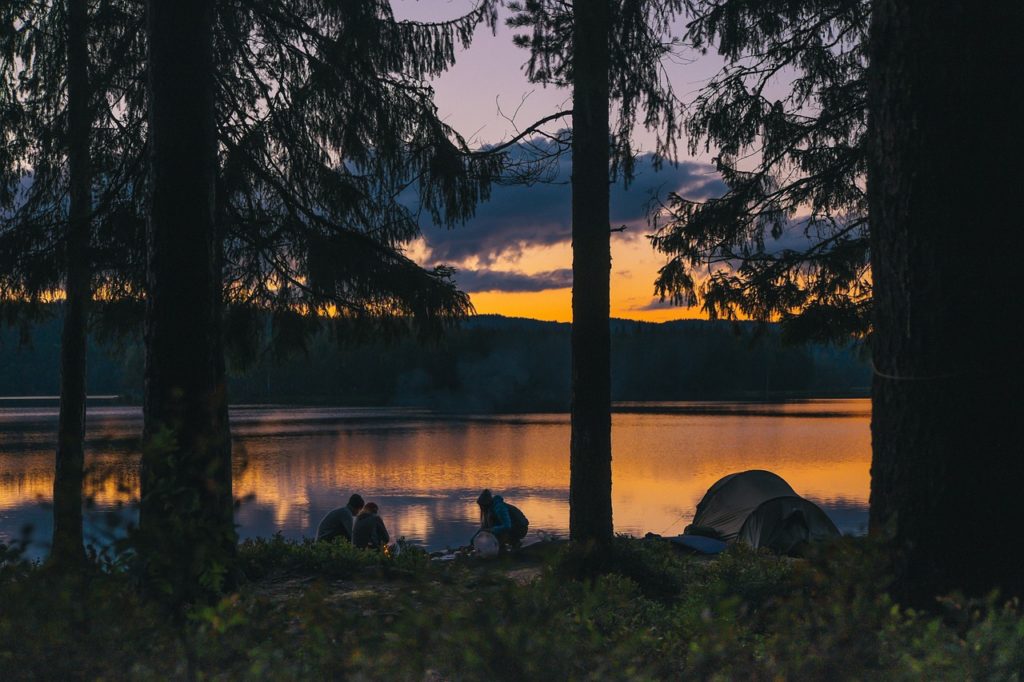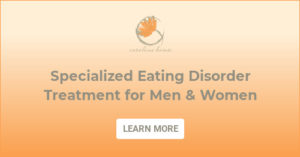- Calls to this hotline are currently being directed to Within Health or Eating Disorder Solutions
- Representatives are standing by 24/7 to help answer your questions
- All calls are confidential and HIPAA compliant
- There is no obligation or cost to call
- Eating Disorder Hope does not receive any commissions or fees dependent upon which provider you select
- Additional treatment providers are located on our directory or samhsa.gov
Summer in a Pandemic Makes Socializing Even Trickier for Those in Recovery

Contributor: Staff at Carolina House
Summer looks a lot different this year for everyone, especially those in eating disorder recovery.
Depending on which part of the country you live in, pools may be shut down. Some bars and restaurants could be closed or operating at a reduced capacity. Backyard gatherings with friends might go from spontaneous surprises to stressful logistical headaches.
The realities of COVID-19 have made having a social life a challenge for everyone. For people in recovery from an eating disorder, that difficulty is amplified even more.
Eating Disorder Recovery in Isolation
Recovering from an eating disorder is as tough emotionally as it is physically. And in a time when it’s not as easy to see those in your support system in person, the recovery process can be far more stressful in isolation.
Trips to the grocery store with a friend may not currently be feasible. Meal planning or cooking with a family member who lives elsewhere might not be as possible as they once were. Even what once seemed like the simplicity of a helpful hug from someone who understands what you’re going through is suddenly a potential health and safety hazard.
But that doesn’t mean that you have to navigate your recovery from an eating disorder alone this summer. As you work through the physical and emotional ups and downs of recovery, maintaining social support is critical.
Call for Help 844-485-6232
According to the Dove Global Beauty and Confidence Report, 79% of girls and 85% of women admit to opting out of important life events when they don’t feel that they look their best [1]. Given the significance our culture places on events that revolve around food, that may be especially true if friends are gathering at a restaurant or for a cookout.
Perhaps you once felt like meeting friends for a drink or a meal was the only way to maintain relationships, even if those get-togethers resulted in unwanted triggers or negative ramifications for your recovery from an eating disorder. In that sense, perhaps the social caution brought on by a pandemic can work in your favor.
Here are five ways to keep up a social life — and help sustain a support system — in recovery during this unusual summer while maintaining some physical distance.
1. Let the games begin
While there are elements of exercise that can manifest in some eating disorders, it’s still important to stay physically active. Even in a pandemic, that’s possible with relatively low risk.
While some sports call for close contact with others — think basketball and volleyball — there are plenty of leisure activities that allow for socializing while staying somewhat distant. Tennis and golf are two of the best, with tennis ranking as the least risky summer activity during the pandemic, according to four Michigan health experts [2].
2. Zoom, Zoom, Zoom
The Mazda commercials from the early 2000s were prescient for what was to come in 2020. Friends and family have stayed connected via videoconferencing during the pandemic, and for a person in eating disorder recovery, having virtual support can be critical.
Whether it’s a weekly chat with a regular group of friends or an ongoing meeting with others in eating disorder recovery, seeing and hearing from your support system is both socially pleasurable and emotionally satisfying.

The bigger the space, the better, but a backyard book club takes away some of the triggering pressures of a barbecue, adds some healthy intellectual discussion, and allows for some proper distancing by spacing out chairs. Have a friend who has a pool? Sit a safe distance apart with feet dangling in the water.
Bring your masks and do something many book clubs forget to do — talk about what you (may have) read! Or discuss your ideal summer vacation plans once it’s safer to travel. What’s important is that you’re staying socially engaged with your peers.
4. Go green
Community gardens can be a lot of fun if you don’t have the space or green thumb to maintain that tomato plant on your own. Even if you do, it’s a good way to meet people. It’s also a good conversation starter for some potentially delicious meal planning when the seeds of your labor pay off.
5. Lay out underneath the stars
This one probably involves taking the most precautions, but camping can be a good way to get away from the body-shaming pressures of social media and focus on yourself and your recovery for a few days.
Find a few trustworthy friends, drive separately, load up on sanitizer, and pitch individual tents while enjoying nature and reconnecting with one another. Bonding around a campfire can be a lasting reminder that while the summer of 2020 certainly was unique, it wasn’t enough to keep you from staying physically safe and emotionally fulfilled as you continued your successful recovery journey.
References:
[1] Allen, M. (2016, June 23). This Dove Report Reveals Shocking Results About Women’s Body Confidence. Cosmopolitan. Retrieved from: https://www.cosmopolitan.com/style-beauty/beauty/news/a60373/womens-body-confidence-declining/. [2] Belmonte, A. (2020, June 14). Coronavirus: Public health experts ranked 36 American activities based on risk. Yahoo! Finance. Retrieved from: https://finance.yahoo.com/news/coronavirus-health-experts-ranked-activities-risk-132702304.html.About the Sponsor:

The opinions and views of our guest contributors are shared to provide a broad perspective of eating disorders. These are not necessarily the views of Eating Disorder Hope, but an effort to offer a discussion of various issues by different concerned individuals.
We at Eating Disorder Hope understand that eating disorders result from a combination of environmental and genetic factors. If you or a loved one are suffering from an eating disorder, please know that there is hope for you, and seek immediate professional help.
Published on July 22, 2020.
Reviewed & Approved on July 22, 2020, by Jacquelyn Ekern, MS, LPC
Published on EatingDisorderHope.com

